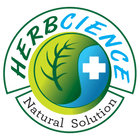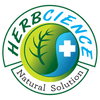Do you wonder how vitamin-C plays a huge role in skin rejuvenation? If yes, then this blog is for you to explore about vitamin-C and skin care. In this blog we Ashall have a brief discussion on introduction to skin, introduction to vitamin-C, what is vitamin-s’s duties, how vitamin-c rejuvenates skin, effects of vitamin-c deficiency, remedies for vitamin-C, bond between vitamin-c and skin rejuvenation, what are vitamin-c rich herbs? What are the disadvantages of using chemical based vitamin-c cosmetics? What are the safe alternatives? Why chose HERBCIENCE?
What is skin
Skin, the largest multitasking organ in the human body, is harmed when exposed to multiple infections, polluting impurities in the surroundings. Skin also acts as a barrier to the thermal changes in the environment by maintaining temperature and protects all the bodily organs in its closet.
What is Vitamin-C
Vitamin-C, also known as, Ascorbic acid, is an essential carbohydrate molecule first identified by Albert VonSzent Gyorgyi in 1920. Vitamin-C, one of the water soluble vitamins, is a well-known nutrient for skin repair, wound healing and immunity.
What does vitamin-c do in the body?
Duties of Vitamin-C in the body
- Healing of wounds and scars
- Anti- Aging and anti- wrinkle agent
- Enhance iron absorption in blood
- Immunity trustee
- Maintaining good health of skin, blood vessels and other tissues in the body
- Improves memory
How does vitamin-C rejuvenate skin?
Purpose of Vitamin-C in skin rejuvenation:
When the skin is enriched with vitamin-C, it promotes the formation of a protein called collagen. This collagen plays a significant role in aiding healing of skin quickly, reducing scar marks and pores, decreases pigmentation, and also plays as an anti -wrinkle and anti-aging agent.
What are the effects of vitamin-C deficiency?
Effects of vitamin-C Deficiency:
Vitamin C is termed as an essential vitamin, because the body cannot synthesize vitamin-C with metabolism. Therefore, one needs to externally include vitamin-C in their diet. Ideally a female needs to include 75 mg of vitamin C in her diet and a male needs to include 90 mg in his diet to maintain good health. When this requirement is not supplied for a prolonged duration, this leads to deficiency, which directly affects the skin.
- Rough and dry skin
- Wrinkle and aged skin
- Small dark patches, specially around the cheek folds
- Dark circles below the eyes, around the lips
- Wounds and acnes marks do not reduce pigmentation
- Bright red hair follicles
- Poor immunity
- Anemia and hypertension
- Mood swings and stress
- Weight gain- unexplained
How to include vitamin-C in diet?
Here are few home remedies to increase vitamin-C in diet:
- All citrus fruits are rich with vitamin-C
- A medium sized tomato a day, will keep you away from vitamin-C deficiency
- Other vegetables: Spinach, cabbage, sweet potatoes, broccoli, Brussels sprouts, Bell peppers (green and red) are to be regularly used in diet.
Tip: Avoid over cooking of above mentioned vegetables, as over cooking can destroy vitamin-C in food.
What is the bond between vitamin-C and skin care
Healthy bond between herbal phyto- components and skin is that herbs, known for the presence of abundant vitamin-C, helps in producing collagen, the main protein responsible for enhancing the speedy healing, reducing scars, reducing wrinkles and pores, reducing skin aging and reducing pigmentation in skin.
What are the vitamin-C rich herbs?
Vitamin-C rich herbal ingredients you should consider in your skin products to enhance healthy skin are Chandana1, Manjistha2, Turmeric3, Lodhra4, Lemongrass5, Usheera6, Aloe vera7, Shea Butter8, Olive oil 9. These herbs are rich with Vitamin-C which will promote skin repair quickly and are known for skin rejuvenation.
What are the disadvantages of vitamin-C in chemical-based cosmetics?
Let us glance at the chemicals used in your regular cosmetics and the health hazards that damage skin and other bodily functions.
|
Product |
Chemical in the product |
Labeled on the Product |
Health hazard on usage |
|
Body Massage oil |
Butylated Compounds |
BHA, BHT |
Cancer, Reproductive impairment, Developmental impairment |
|
Artificial Fragrance |
Parfum, Natural flavor, Artificial flavor, Flavor |
Cancer |
|
|
Body Lotion |
Benzophenone |
Benzophenone, BPZ |
Cancer, Reproductive impairment, endocrine system impairment, organ toxicity |
|
Coal Tar |
Coal Tar solution, Tar coal |
Cancer, Organ Toxicity |
|
|
Ethanolamine compounds |
DEA, TEA |
Cancer, Organ Toxicity |
|
|
Butylated Compounds |
BHA, BHT |
Cancer, Reproductive impairment, endocrine system impairment, organ toxicity |
|
|
Face Wash |
Artificial color |
Brilliant blue, Tartrazine, FCF |
Eye irritation, skin irritation |
|
Ethanolamine compounds |
DEA, TEA |
Cancer, Organ Toxicity
|
|
|
Face Cream |
Benzophenone |
Benzophenone |
cancer, reproductive impairment, endocrine impairment organ toxicity
|
|
Butylated Compounds |
BHA, BHT |
cancer, reproductive impairment, endocrine impairment organ toxicity |
|
|
Hydroquinone |
Hydroquinone |
cancer and respiratory tract irritation |
|
|
Face Pack |
Phenoxyethanol |
Fragrance |
Cancer |
|
Triethylene glycol |
TEG |
Skin Irritation |
|
|
Triethanolamine |
TEA |
Cancer, Organ toxicity |
|
|
Sodium Lauryl Sulphate |
SLS |
Cancer, Organ toxicity, Eye irritation, skin irritation |
Therefore usage of herbal cosmetics is always safe.
What are the safe alternatives?
Always consider usage of herbal skin products, that are enriched with vitamin-C to avoid chemical reactions and side effects:
Deep Cleansing by HERBCIENCE Revitalizing Pro-Collagen Face Wash
Benefits:
- Deep cleansing
- Skin conditioning
- Anti acne
Skin nourishment by HERBCIENCE Natural Glow Pro-collagen Face cream
Benefits
- Skin glowing
- Skin lightening
- Anti-acne
- Skin nourishment
Skin detox by HERBCIENCE Natural Glow Pro-Collagen Face pack
Benefits
- Anti-acne
- Skin lightening
- Skin nourishment
Why choose HERBCIENCE?
HERBCIENCE is a 100% transparent brand and all the products are developed by doctors, with the fresh extractions of herbs. They are 100% Natural certified by ECOCERT - COSMOS Natural, a European Standard, AYUSH, Govt. of India, and compliant with MADE SAFE, USA.
Conclusion
Therefore, vitamin C is an outstanding character artist in all herbal skin products to bag excellent glowing skin. So if you plan to bag glowing skin, then the best form to uitise vitamin-C is in the form of herbs. Obtaining vitamin-C in the form of artificially prepared chemicals will come with a cost of health hazards like skin rashes etc. Hence it is wise to avoid chemical based and switch to herbal-based vitamin-c products to get the total essence of vitamin-c
Frequently asked questions?
Q 1. Why is vitamin-c important for skin glowing
Ans: Vitamin-c is responsible for quick healing of skin and skin rejuvenation
Q 2: How do you get vitamin-C in my diet?
Ans: Include any one citrus fruit in your diet everyday
Q 3: Is vitamin-C good for skin?
Ans: Yes, vitamin-c is known for quick rejuvenation of skin
Reference:
- Chandana: https://www.thehealthsite.com/news/ways-to-use-red-sandalwood-powder-for-flawless-skin-kd0818-591283/
- Manjistha: https://bebodywise.com/blog/manjistha-benefits/
- Turmeric : https://www.healthline.com/health/turmeric-for-skin
- Lodhra: https://mycocosoul.com/blogs/ayurvedic-skin-care/lodhra-benefits-for-skin
- Lemon grass: https://www.healthline.com/health/lemongrass-essential-oil
- Usheera: https://www.easyayurveda.com/2015/01/08/vetiver-vetiveria-zizanioides-uses-research-side-effects/
- Aloe vera: https://www.healthline.com/health/beauty-skin-care/aloe-vera-for-face
- Shea Butter: https://www.healthline.com/health/shea-butter-for-face
- Olive oil: https://www.onlymyhealth.com/how-to-use-olive-oil-for-skin-lightening-1588059239



